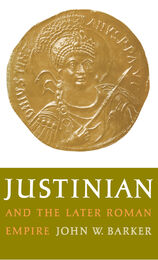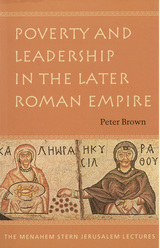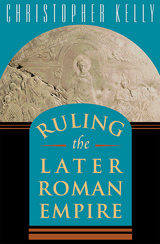

Marked by the shift of power from Rome to Constantinople and the Christianization of the Empire, this pivotal era requires a narrative and interpretative history of its own. Averil Cameron, an authority on later Roman and early Byzantine history and culture, captures the vigor and variety of the fourth century, doing full justice to the enormous explosion of recent scholarship.
After a hundred years of political turmoil, civil war, and invasion, the Roman Empire that Diocletian inherited in AD 284 desperately needed the radical restructuring he gave its government and defenses. His successor, Constantine, continued the revolution by adopting—for himself and the Empire—a vibrant new religion: Christianity. The fourth century is an era of wide cultural diversity, represented by figures as different as Julian the Apostate and St. Augustine. Cameron provides a vivid narrative of its events and explores central questions about the economy, social structure, urban life, and cultural multiplicity of the extended empire. Examining the transformation of the Roman world into a Christian culture, she takes note of the competition between Christianity and Neoplatonism. And she paints a lively picture of the new imperial city of Constantinople. By combining literary, artistic, and archaeological evidence. Cameron has produced an exciting record of social change. The Later Roman Empire is a compelling guide for anyone interested in the cultural development of late antiquity.


In this highly original work, Christopher Kelly paints a remarkable picture of running a superstate. He portrays a complex system of government openly regulated by networks of personal influence and the payment of money. Focusing on the Roman Empire after Constantine's conversion to Christianity, Kelly illuminates a period of increasingly centralized rule through an ever more extensive and intrusive bureaucracy.
The book opens with a view of its times through the eyes of a high-ranking official in sixth-century Constantinople, John Lydus. His On the Magistracies of the Roman State, the only memoir of its kind to come down to us, gives an impassioned and revealing account of his career and the system in which he worked. Kelly draws a wealth of insight from this singular memoir and goes on to trace the operation of power and influence, exposing how these might be successfully deployed or skillfully diverted by those wishing either to avoid government regulation or to subvert it for their own ends. Ruling the Later Roman Empire presents a fascinating procession of officials, emperors, and local power brokers, winners and losers, mapping their experiences, their conflicting loyalties, their successes, and their failures.
This important book elegantly recaptures the experience of both rulers and ruled under a sophisticated and highly successful system of government.

READERS
Browse our collection.
PUBLISHERS
See BiblioVault's publisher services.
STUDENT SERVICES
Files for college accessibility offices.
UChicago Accessibility Resources
home | accessibility | search | about | contact us
BiblioVault ® 2001 - 2025
The University of Chicago Press









